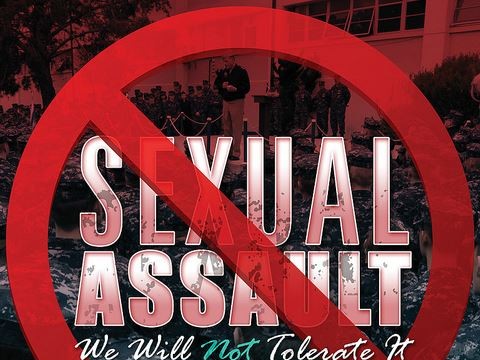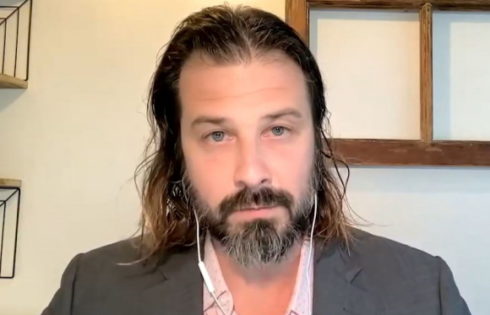
While universities are the institutions that research and identify the problems of sexual assault, they are at the same time reluctant and unlikely to develop programs that combat it – partly due to fear of negative publicity.
So says Dr. David Lisak, a renowned clinical psychologist and rape expert who gave a two-hour presentation earlier this month at the University of Wisconsin–Madison during its Sexual Assault Awareness Month.
Universities need to reassess their “leadership and commitment” when it comes to preventing sexual assault on campus, Lisak said, while also stressing that “single individuals can force enormous change” on their own.
Lisak, a former professor at the University of Massachusetts–Boston, currently acts as a consultant to law enforcement, an expert witness in death penalty trials, and conducts training and workshops on sexual assault prevention across the country. His research focuses primarily on non-stranger rape and assault.
According to Lisak, those ages 18 to 24 are at maximum vulnerability for sexual assault, and because of that, sexual assault “is a grim reality on college campuses,” he said.
In his own study of 1,882 male U-Mass students, 120 were found to be rapists—near the national average for all men. Of the 120 rapists, 76 were serial offenders, who combined to commit more than 1,000 abusive acts.
The U-Mass stats are common at other college campuses across the nation, Lisak has found.
At one point, Lisak shared a video reenactment of an interview he conducted with a study subject who had admitted to committing rape.
The subject, a Duke student, relayed a story of how he and his fraternity brothers would “target” vulnerable girls and make them feel special by inviting them to a party later in the week.
At these parties, the “targets” would be given drink after drink until they were near or at the point of unconsciousness. The subject went on to describe one particular “target” with whom he forcibly engaged in sexual intercourse.
The story was shared with a patently cavalier tone and narcissistic attitude, something Lisak said is common among repeat offenders.
Among other things, the video served as an illustration that, according to Lisak, alcohol is “not a cause,” but rather “a weapon.” That is, sexual assault is not caused by liquor; rather, predatory individuals strategically use alcohol to manipulate, disorient, and weaken their “targets.”
Fortunately, the public has an especially keen perceptivity when it comes to sexual violence, he said.
“Nothing will bring the CNN trucks faster than sexual assault,” quipped Lisak.
The majority of Lisak’s presentation focused on non-stranger rape—what some refer to as “date rape.”
The psychologist began by dispelling myths about rape and then shared what he described as “realities of offenders” – there is no “profile” of a sex offender; most offenders are serial offenders; most assaults are committed by serial offenders; and serial offenders are predatory, manipulative, and exploitative. Additionally, most rapes are premeditated.
A 2009 study performed by the U.S. Navy yielded similar results.
While perhaps prima facie disheartening, Lisak emphasized the fact that these studies, which are representative of the larger population, highlight the fact that 94 percent or more of men are not rapists, a fact he remains “doggedly optimistic” about.
For the final portion of his presentation, Lisak focused on prevention.
Beyond “aggressively investigating and prosecuting core sex offenders,” Lisak suggested that outliers’ beliefs must be changed. Awareness of the problem must be increased via the implementation of bystander education programs; for example, the Air Force has a bystander-intervention program. Also, as with drunk driving, social norms must change such that sexual assault is more profoundly condemned.
Fix contributor Joseph Diedrich is a student at the University of Wisconsin-Madison. He is also Director of Operations of Young Americans for Liberty at UW, and a columnist for Washington Times Communities.
CLICK HERE to LIKE The College Fix on Facebook.
IMAGE: U.S. Navy/Flickr





Please join the conversation about our stories on Facebook, Twitter, Instagram, Reddit, MeWe, Rumble, Gab, Minds and Gettr.